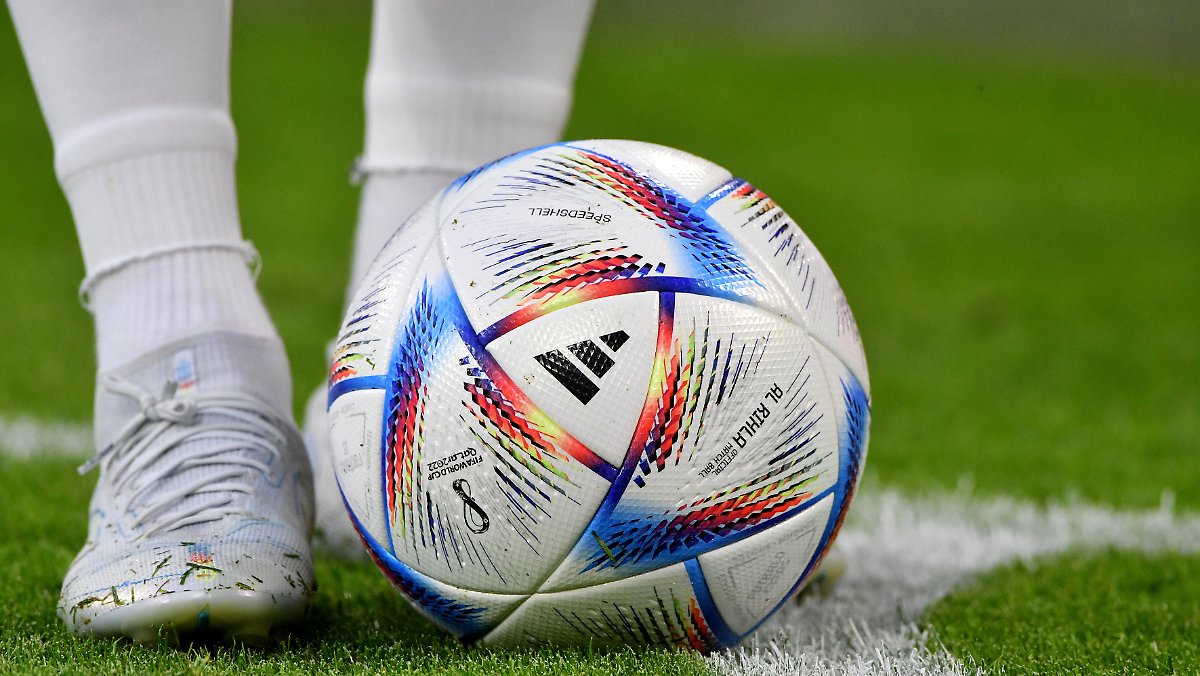The VAR is blowing the minds of a great many fans week after week. Many controversial decisions remain controversial even after a possible review. And in any case, it always takes far too long. A nuisance that FIFA wants to combat with a technical revolution at the 2022 World Cup in Qatar.
The ruler can go in the trash, with the annoying forward and rewind is an end: the soccer world association FIFA has decided the next technology revolution and will bring at the World Cup finals in Qatar (21 December to 18) the semi-automatic offside detection to use. “The system is ready – and we’re ready,” said refereeing chief Pierluigi Collina: “All the tests have gone to our complete satisfaction.”
According to FIFA’s plans, each World Cup match will use 12 so-called tracking cameras and a sensor in the ball, which together will create a 3D animation. The data will reflect 29 locations on the players’ bodies and the exact moment the ball is released. Within five seconds, the signal is expected to reach the video referee (VAR). Only 25 seconds are expected to elapse before the final decision is made after a review by the VAR. After that, the animation is to be shown on the video cube in the stadium and on TV.
Successful test phase, green light
“Until now, even with the best technology, it takes an average of 70 seconds to check an offside decision. With the new technology, we are faster and more accurate. We needed that,” Collina expressed, “We will continue to train our video referees in the use of the technology. Already two weeks before the World Cup, all referees will be on site for the final touches. We expect it to work as smoothly as it did with the goal-line technology.”
The new technology, the cost of which the world governing body is silent on, was tested last year at the Arab Cup and in January at the Club World Cup. In addition, FIFA says the innovation has been reviewed by several universities around the world. The International Football Association Board (IFAB) has also given the green light.
“This technology is the result of three years of intensive research and testing in an effort to provide the best for teams, players and fans in Qatar this year,” said FIFA President Gianni Infantino: “FIFA is proud of this achievement and looks forward to showcasing the benefits of semi-automatic offside technology to the world at the World Cup.”
Referees remain important
Six years after the introduction of VAR, the authorities are taking another decision out of the hands of the referees. But Collina vehemently denies that this spells the end for the flesh-and-blood referees.
“The term ‘robot referee’ may be good for headlines, but it has nothing to do with reality,” said the 62-year-old Italian: “If only technology were relevant, it would be better for an engineer to do my job. Our main goal remains that the referee makes correct decisions on the pitch. But to err is human. That’s when technology comes into play to prevent mistakes.”
Collina believes that VAR has proven that this system works. “Fifty countries have now introduced the technique – with great success,” the former top referee stressed: “Errors have been dramatically reduced, the game has become much cleaner.”
Whether and when the new offside technique will be used in top international leagues such as the Bundesliga remains to be seen. Meanwhile, Collina announced that FIFA is currently working on a “VAR light” with fewer cameras and correspondingly lower costs in order to make the technology available to financially less well-off associations.
Follow us and check out our social media accounts on Twitter, Facebook & YouTube ►
● on Twitter ► esport.directory
● Facebook ► esport.directory
● Youtube ► esport.directory
FIFAtips, FIFAtricks, FIFAcheats, FIFAhacks, FIFAhacks2022, FIFA2tipspro, FIFApaidcheats, FIFA, FIFAtipsandtricks, FIFAtipsandtricks2022, FIFA2tipsandtricksforbeginners, FIFA2tips, FIFAtricks, FIFAtrickshots, FIFAhacks, FIFAhacksfree, FIFAhacksfree2022,




